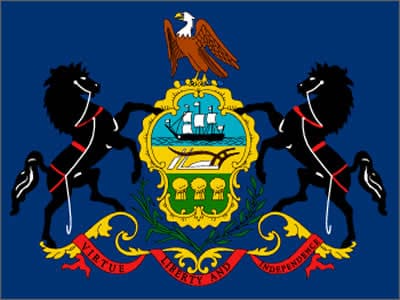Just a few short days ago, Pennsylvania state legislature approved a two percent tax increase on all table game revenue generated by land-based casinos. This brings the current table game tax rate to an all-time high of 16 percent. This is in addition to the staggering 54 percent tax that the state’s casinos already pay on slot machines. With this latest tax hike, Pennsylvania casinos have become the highest taxed in the country.
This increased tax rate is projected to add an additional $17 million to the annual state budget. While this sounds great for the state, it is worth noting that this still leaves them with an $83 million budget deficit to make up. Another interesting fact to note is that this tax hike is not permanent. It is set to expire in January 2019 unless it gets renewed by the state legislature.
Casinos Strongly Oppose New Bill
Naturally, the casino industry was less than thrilled about this legislation. This, combined with the extremely high taxes they are already forced to pay on slot machines, makes Pennsylvania a rather unfavorable environment for industry growth and expansion.
Mark Juliano, CEO of Sands, remarked, “We spend a lot of time fighting some of the other stuff; this one sort of came out of nowhere. We’re not happy about it, but it doesn’t stop us in our tracks. [Pennsylvania] is already the highest tax environment for casinos, but we’ll deal with it.”
Despite the general displeasure, there are some in the industry who believe that the temporary tax hike is more along the lines of a one-for-one compromise where the casinos are permitted to expand into online gambling and daily fantasy sports in exchange for a slightly higher tax rate. While this sounds logical, it is important to note that the Pennsylvania legislature has been deadlocked on the subject of US online gambling and daily fantasy sports for a long while. There are no concrete plans at all for progressing online gambling legislation until sometime next year at the earliest.
Impact On Future Online Gambling Prospects
In its current form, this table game tax hike really does not affect any future online gambling in Pennsylvania. However, there are a few interesting possibilities that stem from the passage of this bill, especially since the state is placing much of its hope on the $100 million in “expected revenues” that this future gaming reform bill should generate to help balance its massive deficit.
This newly-passed tax increase was not part of the original packet of legislation passed by the Pennsylvania House of Representatives, which could mean that the gaming reform package may see some serious changes before any true progress is made. The way the legislation is being talked about at this point gives the impression that it is a definite, “must-pass” bill, but with the amount of discord it created in the last legislative session, it remains to be seen what the bill’s final form will take. The controversy surrounding the bill is compacted by the fact that two of the biggest casino names in the state are very vocal in their detraction of the bill.
Though the tax increase puts a small dent in the short-term deficit reduction, it’s only a small drop in the bucket compared to what online gambling can do. In its first year alone, online gambling licensing fees would generate at least $50 million on top of the $100 million it would generate annually once it gets established.
If Pennsylvania plans to solve its budget problems over the long term, the state’s House and Senate will have to come to some kind of agreement over online gambling legislation, because tax increases like this one simply aren’t enough on their own to make the state solvent.

